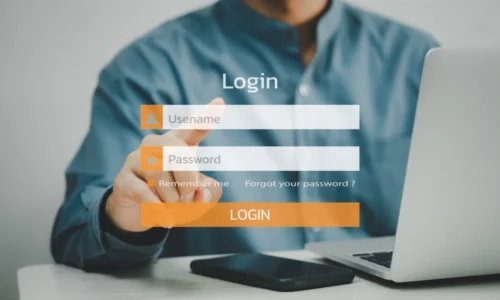
Are you a local business looking to improve your search engine rankings in 2023? Local SEO is crucial for any business that wants to be found by customers in their local area. In this article, we will be discussing the top 14 local SEO ranking factors that you should focus on in 2023. From optimizing your Google My Business listing to building high-quality backlinks, we will cover everything you need to know to improve your local SEO and get your business to the top of the search results.

Google My Business Optimization
Google My Business (GMB) is a free listing service provided by Google that allows businesses to manage their online presence across Google, including Search and Maps. Optimizing your GMB listing can have a significant impact on your local SEO efforts.
- Verify your listing: Verify your business so that you can edit the information on your listing, respond to reviews, and see how many people are viewing your listing.
- Complete your profile: Make sure to fill out all the information on your listing, including your business name, address, phone number, and hours of operation.
- Use categories: Use relevant categories to help Google understand what your business is and what services it offers.
- Add photos: Add high-quality photos of your business, including photos of the exterior and interior, products, and team members.
- Encourage reviews: Encourage customers to leave reviews on your GMB listing. Positive reviews can help improve your visibility in search results.
- Monitor and respond to reviews: Monitor your reviews and respond to both positive and negative reviews in a timely manner.
- Use Google Posts: Use the Google Posts feature to share updates, events, and promotions with customers.
- Optimize for Google Maps: optimize your listing for Google Maps by making sure your address and phone number are correct and using relevant categories.
- Utilize Google My Business Insights: Utilize the insights provided by Google My Business to understand how customers are interacting with your listing and make data-driven decisions to improve it.
NAP Consistency
NAP consistency refers to ensuring that your business’s Name, Address, and Phone Number (NAP) are consistent across all online platforms and directories. This is important because search engines use NAP information to determine the validity and relevance of your business, and to understand where it is located. Inconsistencies in NAP information can confuse search engines and lead to poor search engine rankings and decreased visibility for your business. To improve NAP consistency, it is important to:
- Use the same NAP information everywhere – Use the same name, address, and phone number for your business on your website, Google My Business listing, social media profiles, and other online directories.
- Use a consistent format – Use the same format for your NAP information on every platform. For example, if you use “Street” on one platform, don’t use “St” on another.
- Keep your information up-to-date – Regularly review and update your NAP information to ensure it is accurate and current.
- Use local phone numbers – If possible, use local phone numbers with a local area code.
- Use local address – Use the physical address of your business instead of a PO box.
- Use schema markup – Use schema markup to help search engines understand the information on your website and improve the display of your NAP information in search results.
- Monitor your NAP – Use tools to monitor your business’s NAP information across the web, and correct any discrepancies you find.
By keeping your NAP information consistent and up-to-date, you can improve your chances of ranking higher in local search results, and make it easier for customers to find your business.
On-page Optimization
On-page optimization refers to the process of optimizing your website’s content to improve its relevance and quality in the eyes of search engines. There are several on-page optimization factors that you should focus on to improve your local SEO rankings in 2023:
Keyword research:
Conduct thorough keyword research to identify relevant and high-traffic keywords for your business, and use them strategically in your website’s content.
Title tags and meta descriptions:
Write unique and compelling title tags and meta descriptions for each page on your website, incorporating your target keywords and information about your business.
Header tags:
Use header tags (H1, H2, H3) to structure your content and make it easier for search engines to understand the main topics on each page.
Content quality:
Create high-quality, informative, and engaging content that aligns with your business’s target keywords and provides value to your potential customers.
Local content:
Incorporate local content on your website, such as city-specific pages, local events, or news related to your local area.
Internal linking:
Use internal links to connect related content on your website and help search engines understand the structure of your website.
Page speed:
Optimize your website’s page speed to improve user experience and help search engines crawl and index your pages more efficiently.
Mobile optimization:
Ensure that your website is mobile-friendly and optimized for different screen sizes.
URL structure:
Use clean and descriptive URLs that include your target keywords and help search engines understand the content on each page.
By focusing on these on-page optimization factors, you can improve the relevance and quality of your website’s content, which can help you rank higher in local search results.
Link building
Link building refers to the process of acquiring high-quality links from other websites to your own website. Links are a key factor in search engine rankings, and having high-quality links from authoritative websites can help improve your local SEO rankings. Here are some link building strategies that you can use in 2023:
- Create valuable content: Create valuable and shareable content on your website that other websites will want to link to.
- Guest blogging: Write guest posts on other relevant websites and include a link back to your website in your author bio.
- Local directories: List your business in relevant local directories and niche directories.
- Sponsorship and community involvement: Sponsor local events or get involved in community organizations to earn links from local websites.
- Social media: Share your content on social media platforms and encourage others to share it as well.
- Broken link building: Find broken links on other websites and offer your content as a replacement, including a link back to your website. By building high-quality links to your website, you can improve your local SEO rankings and increase your online visibility in your local area.


